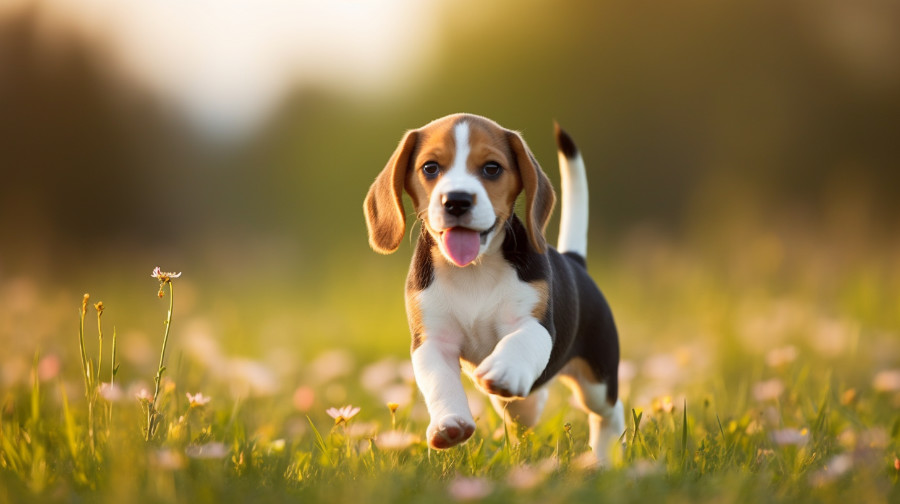Physical Address
304 North Cardinal St.
Dorchester Center, MA 02124


Beagle puppies’ natural curiosity and intelligence makes them adept explorers, leading them to explore places they shouldn’t, making boundary training essential.
Beagles are known to beg for food. Therefore, it’s best not to give them table scraps or excessive treats that may lead to obesity.
Beagles were specifically bred for hunting and boast a keen sense of smell. While on leash, these dogs may be tempted to chase cats or small animals. Be sure that when called back they come when called; additionally it’s wise to keep a Beagle away from other dogs since it could see them as prey.
Beagles are pack dogs who prefer being part of a family unit. Beagles tend to get along well with children, making them great running or hiking partners. Although Beagles tend to enjoy long walks alone, long periods without stimulation could lead to destructive chewing or barking behavior; ensure your Beagle has plenty of toys for playtime!
Beagles, like other hound breeds, are inquisitive and mischievous dogs. While they enjoy playing with children, especially young children, it is wise to supervise closely to prevent injuries to either party. Beagles also become bored easily when left alone for extended periods, which leads them to dig holes or climb fences in an attempt to escape boredom.
Beagles may require veterinary attention for various health concerns, including glaucoma – which causes eye pain and bluish eyes – or amyloidosis, in which protein characteristics change and deposit themselves in tissues; symptoms include high fever and swollen joints. Lifelong medication treatment of either disorder is necessary to improve their quality of life.
Beagles are low maintenance dogs that do not drool or shed much. Their short coat is easy to groom and they require little physical exercise – although they still enjoy walks and playing with other dogs. Though naturally barkers, beagles can be trained not to do so through training sessions and socialization with other pups. Beagles tend to raid pantry shelves or garbage for food so ensuring weight control should always be considered when raising this breed of pup.
Beagles tend to get along well with children and cats, although it’s wise to give each a proper introduction prior to living together. Beagles generally thrive best in homes where they won’t be left alone too often since their strong hunting instinct needs stimulation.
Beagles may be known to howl at any opportunity, but they actually don’t bark often unless strangers approach or they detect an interesting scent. You can reduce their barking through training techniques and rewarding with treats on occasion.
Beagles are notorious for stealing food. They will raid your pantry and garbage can to consume all they can find. To prevent your Beagle from becoming obese, measure their food and provide two feedings daily.
Beagles are highly social, so early exposure to various people and environments will help them cope with their natural shyness and prevent aggression from manifesting itself later in life. At this point, it is crucial to keep them on leashes in enclosed parks or other safe environments where they cannot escape.
Beagles are affectionate, friendly dogs that thrive around people and make the ideal family pet. While beagles generally get along well with other animals, their natural hunting instinct means that any cats or small pets in the household must be introduced slowly before being accepted as family pets.
Always select a reputable breeder or shelter when choosing or adopting your Beagle, to avoid puppy mills that do not adhere to responsible breeding standards. Furthermore, Beagles require regular grooming with either a soft-bristle brush or hound glove in order to maintain healthy coats – brushing should take place weekly in order to remove dead hairs while encouraging new growth.
Beagles can be very playful dogs that tend to bite when teething or playing. To reduce this tendency, puppies should be kept crated for brief periods at a time and taught not to bite children or other people.